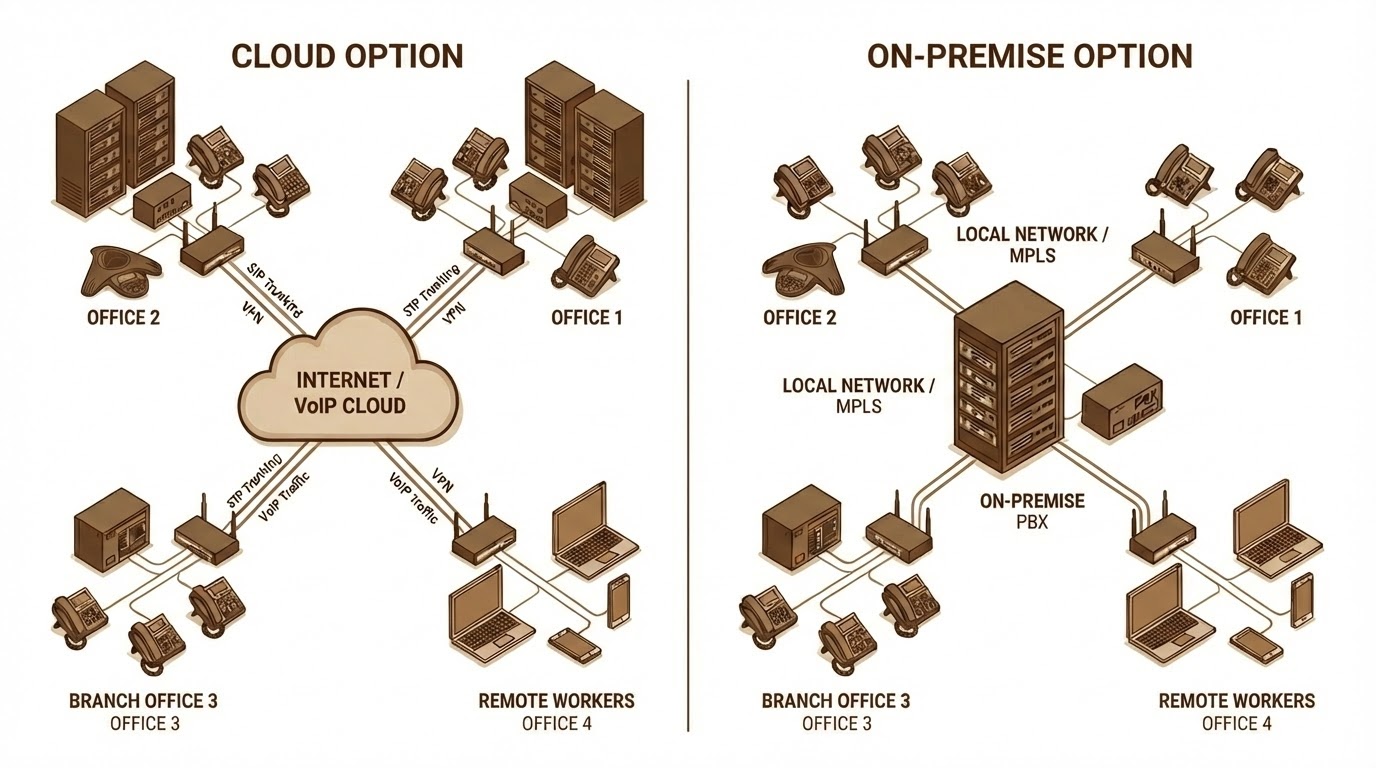Voice over Internet Protocol (VoIP) is a technology that allows voice communication and multimedia sessions to be transmitted over the internet rather than traditional telephone lines. Here’s a brief overview of its key features and benefits:
Key Features:
1. Internet-Based Calls: VoIP converts voice signals into digital data packets that are sent over the internet.
2. Cost-Effective: Typically cheaper than traditional phone services, especially for long-distance and international calls.
3. Multimedia Support: VoIP can integrate voice calls with video, messaging, and other multimedia services.
4. Flexibility: Users can make calls from various devices, including smartphones, computers, and specialized VoIP phones.
5. Scalability: Easily adjustable to accommodate growth, allowing businesses to add or remove lines without significant infrastructure changes.
Benefits:
- Reduced Costs: Lower operational costs compared to traditional telephony.
- Enhanced Features: Many VoIP services include features like voicemail, call forwarding, and conference calling at no extra charge.
- Mobility: Users can make and receive calls from anywhere with internet access.
- Integration: Can be integrated with other business applications, such as CRM systems, for improved productivity.
Considerations:
- Internet Dependency: Quality and reliability depend on internet bandwidth and stability.
- Security: VoIP systems can be vulnerable to cyber threats, necessitating robust security measures.
- Quality of Service (QoS): Prioritizing voice traffic is essential to ensure clear call quality.
Overall, VoIP systems are widely used in both residential and business environments for their efficiency and cost-saving advantages.


